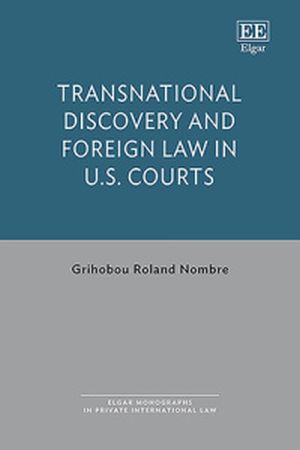We are now closed for the Christmas and New Year period, returning on Monday 5th January 2026. Orders placed during this time will be processed upon our return on 5th January.

Analyzing the intricacies of international civil litigation, this book explores the rules and practices, as well as the differences and conflicts, that occur in this important area of law. Grihobou Roland Nombre focuses his examination on the U.S. Supreme Court and the Hague Evidence Convention, highlighting the problems that can arise when an international convention is optionally adhered to.
Nombre expands on the treatment of foreign law in American discovery practice predating the Hague Evidence Convention, as interpreted in the landmark Aerospatiale case and thereafter. He investigates how U.S. courts determine the applicability of foreign law to discovery, its content, the dismissal of or deference to it, or otherwise accommodation of it. He studies how foreign law treatment evolved following the U.S. Supreme Court’s violation of its own precedent in United States v. Percheman about the interpretation of treaties authenticated in multiple languages. Dissecting the Federal Rules of Civil Procedure, the author asks: how enforceable is compliance with Aerospatiale in federal and state courts ordering discovery abroad under domestic rules or the Hague Evidence Convention as an authorized foreign procedure?
Transnational Discovery and Foreign Law In U.S. Courts is an indispensable guide for legal professionals in areas such as transnational litigation and discovery proceedings. Legal academics and law students interested in The Hague Convention, U.S. courts, evidentiary privilege and conflict of laws will also find the insights here beneficial.